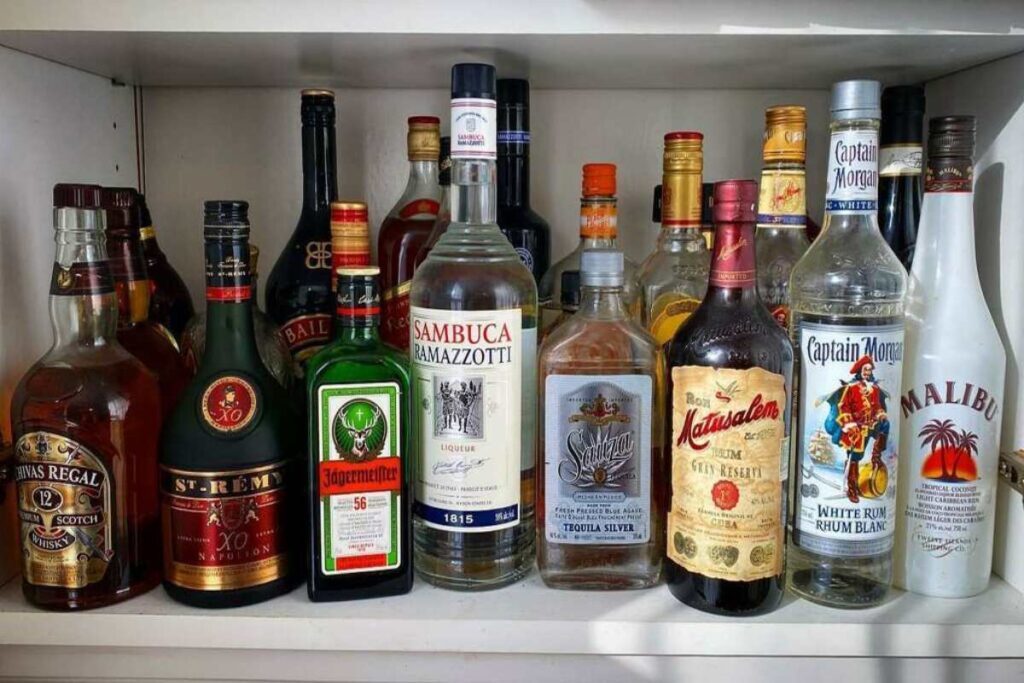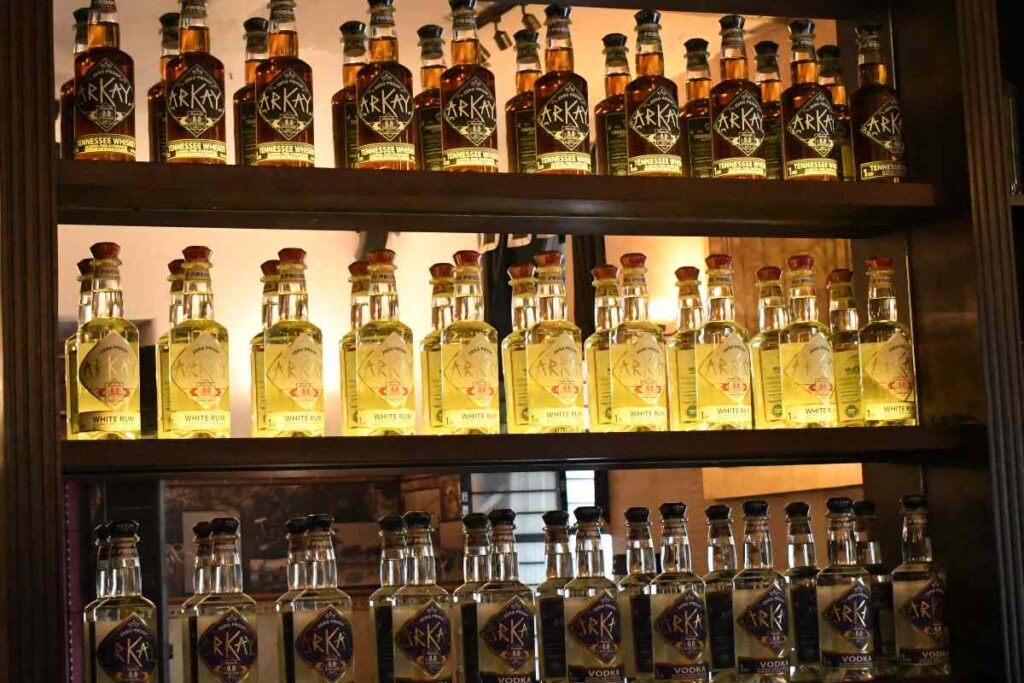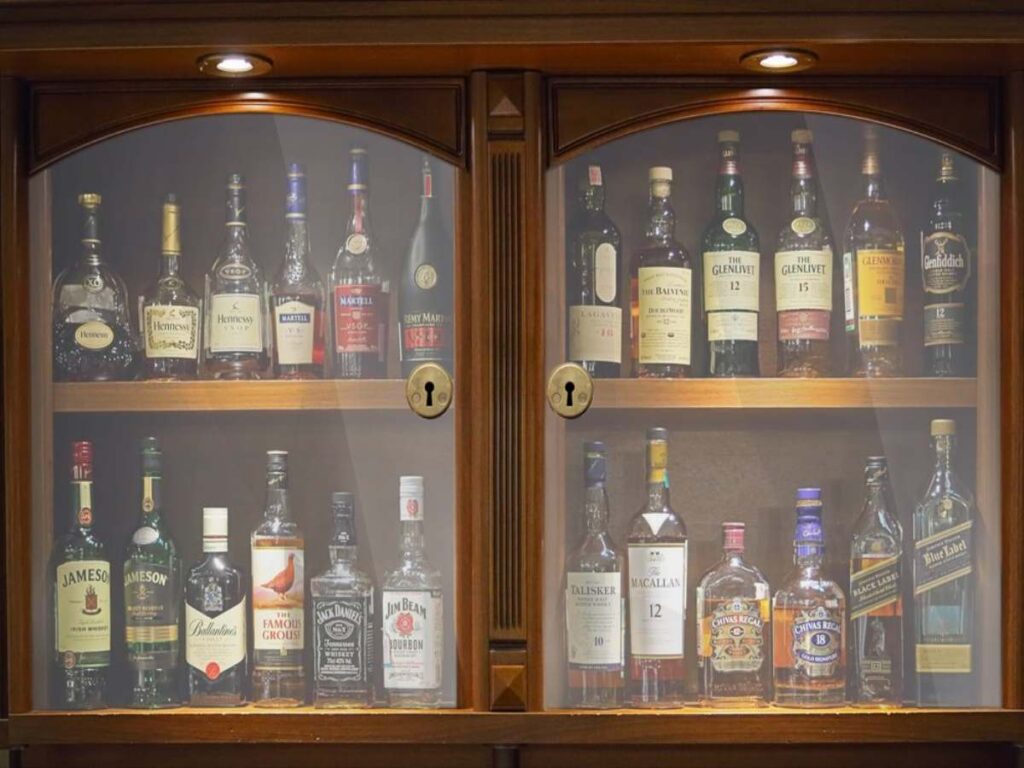One of the greatest controversies surrounding alcohol is storage. Understandably so, considering how delicate many alcohol products could be. If care isn’t taken, alcohol storage at the wrong temperature can make that valued bottle of alcoholic beverage lose its dear taste and texture.
This could ruin that get-together with friends and visitors. So what’s it going to be? Is alcohol storage best in the freezer or outside the freezer?
Should You Store Alcohol in a Freezer?
The answer is Yes and No. Some alcohol fare better inside a freezer, the same way others maintain their best versions in warmer temperatures. That’s because there is a science involved in storing alcohol, which we are about to see.
So, contrary to widespread belief, not all alcohol should stay on the counter. There are alcoholic drinks that you should place in a freezer, especially when they’ve been opened. For example, you would be making a terrible mistake placing a Captain Morgan in your pantry for extended periods.
Essentially, the decision about alcohol storage in the freezer depends on the type of alcohol in question. Each category of booze has an optimum storage environment. Keep them where they belong, and they will reward you by giving their best to your taste buds.
ALSO READ: Get a Flat Tummy With These Simple Hacks To Burn Belly Fat
When Is Alcohol Storage in Freezer Not Good?
Many types of liquor can survive outside the freezer. These include alcoholic drinks that have gone through the distillation process. Essentially, any alcohol with low Alcohol By Volume (ABV)—to be precise, ABV less than 20%—shouldn’t be allowed to freeze. These drinks include wines, beers, and some liqueurs.

When they freeze, they are likely to lose valuable flavor and texture. They can also expand and break their bottles, causing damage to the seal. Wines and beers, especially, are notorious for forming ice crystals on freezing. This noticeably reduces the quality and taste of the drink.
There is also the problem of texture loss when some drinks get frozen. For example, drinks like whisky and tequila have delicate flavor profiles. Keeping them in very low-temperature environments can affect their flavor balance. How, you may ask.
The cold could hide the complexity of their taste and deliver a less-exceptional or dull taste to your taste buds. For liqueurs, primarily the creamy and fruity variants such as Baileys and Amaretto, freezing can change their texture. The fruity ones can lose flavor under cold temperatures, while the creamy ones can separate.
What Type of Alcohol Can You Put in the Freezer?
Knowing the types of alcohol to put in the freezer is also pretty important. Here’s a guide to know what type of alcohol will serve you best when chilled. Again, it depends on the type and the Alcohol By Volume (ABV). Generally, these types of alcohol won’t have problems with very low temperatures.
Whisky
Whiskey can do well in the freezer. However, it is advisable to stop at the “chill” level. Chilled whisky is great, but not the frozen one. When frozen, it can lose its flavor.
Gin
Gin can be frozen. Freezing gin gives it a more refreshing taste without altering its quality in any way.
Rum
Rum, whether light or dark, chilled or frozen, is also safe in the freezer. It’s great for drinks served in cocktails.

Vodka
Vodka also does well in the freezer. It doesn’t lose its quality and even turns out better for sipping and preparing cocktails.
Tequila
Yes, tequila can survive in the freezer. However, it’s best served chilled rather than frozen, as freezing it could reduce its quality.
How Long Can a Drink Stay in the Freezer?
While the freezer is a useful way to keep drinks, there are limits to how long they can stay under very low temperatures. Ideally, it is only advisable to keep a drink in the freezer for just a few hours. To be safe, one to two hours is enough.
When a drink stays more than two hours in the freezer, there is a huge risk that many things could go wrong. Aside from risking a drop in their quality, you could end up losing the drinks entirely.
ALSO READ: “Real Housewives” Star Kyle Richards Says Physical Changes Are “Incentives” To Give Up Alcohol
As earlier mentioned, liquids could expand and cause their glass containers to burst, or they could expand and tamper with their seal. In addition, it’s also good to know the right temperature at which you will get the most out of your drinks.
For wines, the optimum temperature is 49-55 degrees Fahrenheit. At this temperature, its acidity comes out, and its alcohol content becomes more dominant, producing a harsher taste. But in the case of red wine, room temperature is the best deal.
Sparkling wines and champagne are best between the temperatures of 47 and 50 degrees Fahrenheit. Beers are best enjoyed at 42 degrees Fahrenheit, while water is great for hydration and other purposes at 61 degrees.

Can 40% Alcohol Freeze?
No. 40% alcohol wouldn’t freeze. Any alcoholic drink with that volume will only freeze at -9.4 degrees Fahrenheit. That’s much lower than the normal freezing capacity of your freezer, which is about -0.4 degrees Fahrenheit.
This is because the freezing point of alcohol is considerably lower than that of water. Water freezes at 32 degrees, while pure ethanol alcohol only freezes at -173 degrees. Basically, the lower the ABV, the faster the alcohol will freeze. However, with 40% alcohol, the freezer will still be incapable of freezing a drink.
Apart from alcohol expiration, alcohol storage in the freezer could be disastrous without knowing which is safe in the freezer and for how long. Thankfully, we can now enjoy our favorite alcoholic beverages in their best condition.
You Might Also Like:
Eddie Lacy, Former NFL Running Back, Faces Extreme DUI Charges
All We Know About the Lauryn Hill Lawsuit
Controversies and Concerns About Gabapentin
